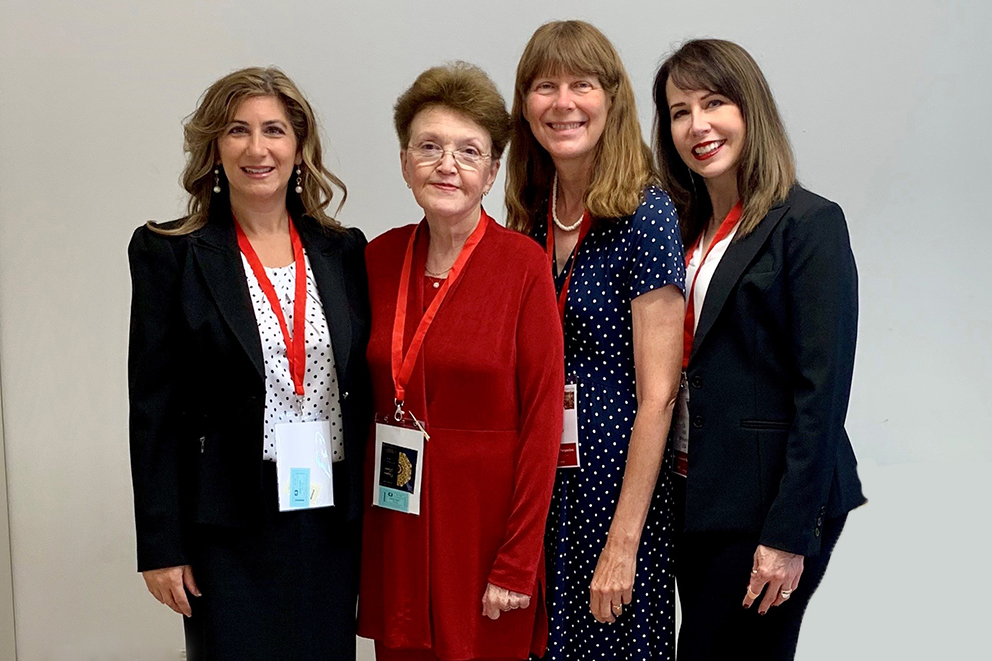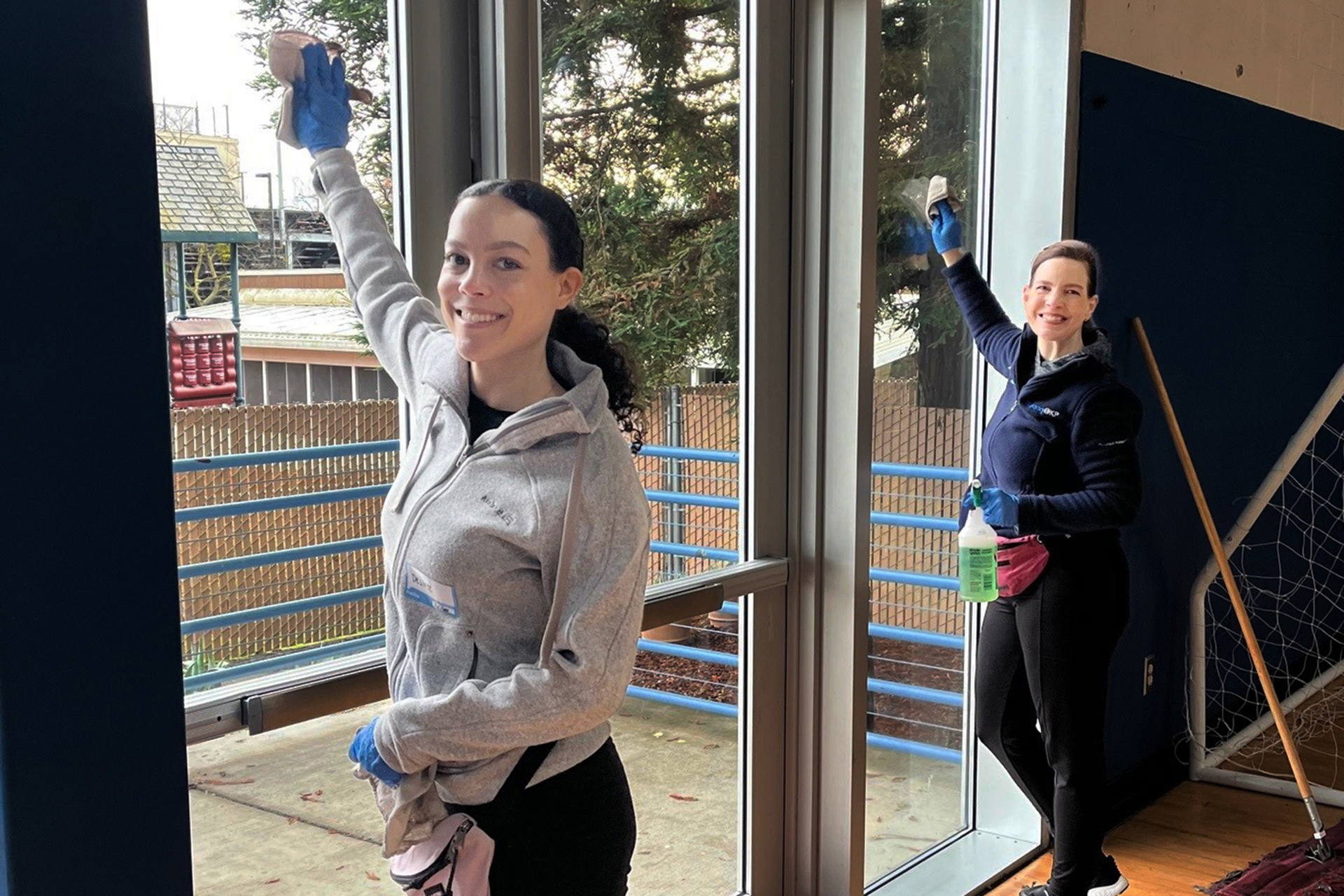Kaiser Permanente mental health clinicians presented a member’s experience at a conference in Florence, Italy. Pictured, left to right, Laura Lencioni, Vinnie Leigh, Diane Kawagoe, and Leah Whitworth.
Four mental health clinicians from Kaiser Permanente Fresno recently shared their successes in treating a severely depressed patient with an international audience of their peers.
The 4 presented a clinical case study of patient Arthur Murata, 72, who has battled depression most of his adult life. The presentation during the 25th World Congress of the International College of Psychosomatic Medicine in Florence, Italy, in September focused on how well Murata responded to Dialectical Behavior Therapy (DBT).
Murata’s case was 1 of 6 selected to be shared at the conference, which was attended by more than 500 mental health clinicians and researchers from 37 countries.
“We shared how our mental health team worked together until we found the right treatment for this patient,” said Vinnie Leigh, RN, who worked with Murata in the mental health department’s Intensive Outpatient Program. “This was really about the integrated, comprehensive care we provide.”
Joining Leigh at the conference were Leah Whitworth, LMFT, psychiatrist Laura Lencioni, MD, and psychologist Diane Kawagoe, PhD. All have worked with Murata, but it wasn’t until he started DBT with Whitworth that he really flourished.
Developed in the late 1980s and introduced to psychiatry in 1993 by psychologist Marsha M. Linehan, dialectical behavior therapy was initially used to treat borderline personality disorder. A type of psychotherapy — or talk therapy — it’s now used in the treatment of other kinds of mental health disorders, including depression and anxiety. It teaches distress tolerance, mindfulness, and emotion regulation.
Murata graduated from the DBT program in August. He spent a year in the outpatient therapy program, which consists of individual therapy sessions, weekly skills classes, and phone or e-mail coaching with a therapist. Testing pre- and post-therapy showed he has had a 58% decrease in his symptoms, Whitworth said.
“He’s so proud, and he felt so validated that all of his hard work has paid off,” Whitworth said. “He really likes being the poster child for our DBT program.”
Whitworth said it was a “chance of a lifetime” to get to share Murata’s story and the successes of DBT on an international stage.
“It was such a joyous gift,” she said. “I just spoke about what we do here every day and the care we provide.”





This Post Has 0 Comments